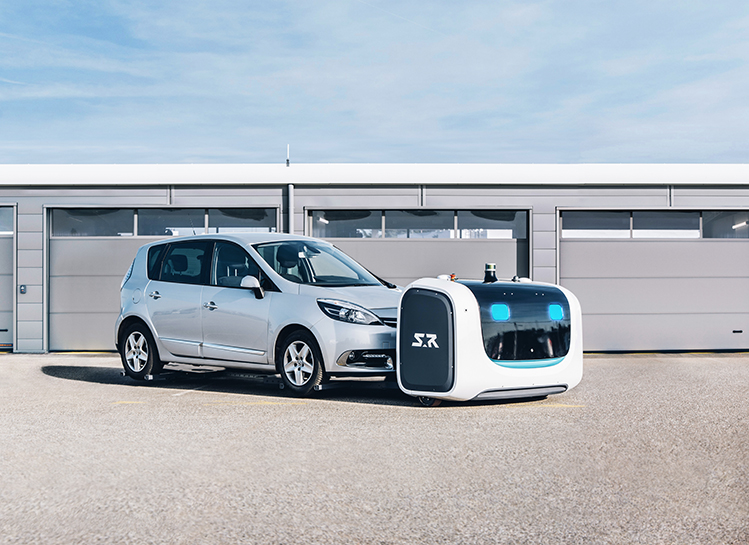Delegates in the Airport Operations & Facilitation Conference at this year’s ACI Airport Exchange will hear from Stéphane Evanno, co-founder & COO, Stanley Robotics. He spoke to Ross Falconer about the operational experience of robotic valet parking at Lyon-Saint Exupéry Airport.
The first outdoor airport car park managed by robots opened at Lyon Saint-Exupéry at the beginning of 2018, following the debut of the ‘Stan’ parking robot in an indoor car park at Paris-CDG in 2016. The automated robotic valet parking service provided by Stanley Robotics can move any vehicle and, it is claimed, can increase capacity in existing car parks by up to 50%, while revolutionising the user experience.
“Robotic parking is no more a dream for the future, it has already been delivering service to numerous public users this year at Lyon-Saint Exupéry Airport, where we first launched commercial operations,” says Stéphane Evanno, co-founder & COO, Stanley Robotics.
Travellers drop off their cars, and collect them again, from dedicated cabins in the car park. Intelligent management software coordinates the robots, with the autonomous platform delicately handling the vehicle by the wheels, moving and parking it. The service is 100% electric, ensuring emission-free parking.

Stéphane Evanno, co-founder & COO, Stanley Robotics: “Robotic parking is no more a dream for the future,
it has already been delivering service to numerous public users this year at Lyon-Saint Exupéry Airport, where we first launched commercial operations.”
Evanno reports that over 95% of users are satisfied with the service, which has grown significantly from an initial 50 spaces. Lyon-Saint Exupéry Airport strongly supports the project, as does operator VINCI Airports, and together with Stanley Robotics they decided to grow the operation to the next level – 500 managed spaces.
“Feedback from travellers shows that what they value most is not having to spend time searching for a parking space, and also the fact that their car is secured during their absence – the area where robots operate and store the cars can’t be accessed by the public,” Evanno comments. “My favourite statement given by a user though is simply ‘magical’.”
“Increasing speed and service level”
The claim is that the robotic valet parking system means car parks can accommodate 50% more vehicles. “Robots can park cars very closely to each other without risk of damaging them, and we also eliminate most of the aisles since cars are stored in large blocks – the keywords here are ‘block parking’,” Evanno explains.
Stanley Robotics has worked extensively on the user experience and on all interfaces provided to the public, refining them to make the process intuitive for customers. “We had issues at the beginning, with people not understanding what they had to do,” says Evanno. “Those issues disappeared over time after several iterations of the service, with refinements to signage, screens, road-markings, etc.”
Looking ahead, there are other projects in progress, and Evanno explains that the robotic valet parking service will be launched in the UK by mid-2019. “Regarding the technology, we are bringing it to full autonomy – meaning no operators – next year, and are always increasing the performance in terms of speed and service level.”







